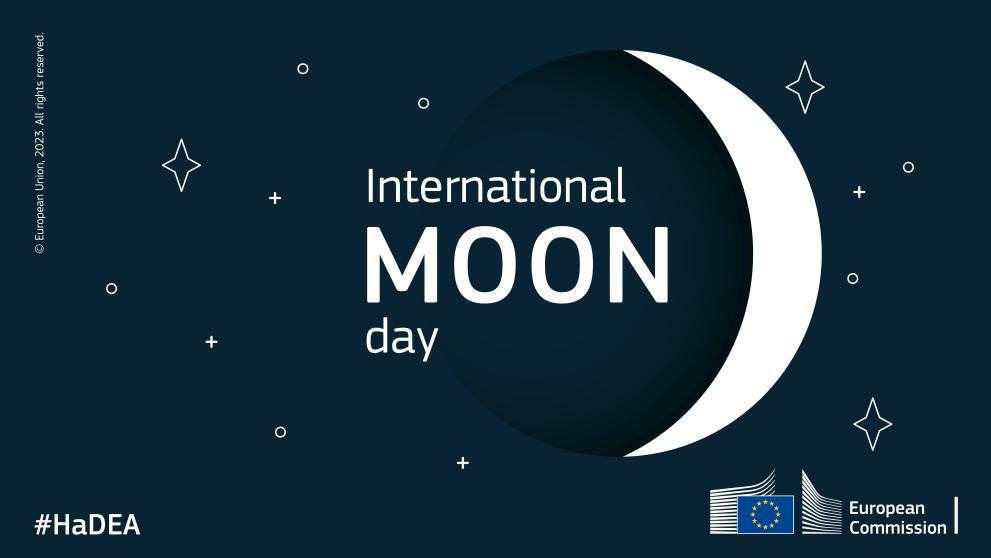
International Moon Day is celebrated annually on 20 July, marking the anniversary of the first landing of humans on the Moon.
Funded by Horizon 2020 and Horizon Europe, EU space research projects are developing novel technologies and scientific instruments to advance future Moon exploration.
Discover five research projects managed by HaDEA:
- LUVMI-X has successfully developed a lightweight autonomous rover to explore the polar regions of the Moon. Equipped with innovative instruments, it is able to identify water and other volatiles on the lunar surface, thereby opening new horizons for a future lunar economy and human Moon missions. Learn more about the Lunar Rover in this video.
- CoRob-X demonstrated in a moon-like analogue setting how a robotic team of three different rovers can cooperate and explore real lava tubes, like those on the Moon. By simulating challenging testing scenarios, the project improved the feasibility of new and ambitious robotic missions, as well as their useability on Earth. Discover more about the field trials in this project video.
- EXPLORE aims to use machine learning and state-of-the-art visualisation tools to advance the exploitation of European space science data. The project has developed six Scientific Data Applications (SDAs) two of which are dedicated to lunar observations, orbits and landing sites. The project also organised three ‘Lunar Data Challenges’ aimed at Moon enthusiasts of all ages.
- LUWEX is developing novel water extraction, purification, and quality monitoring technologies for future use on the Moon. Water is the most versatile and needed resource in space exploration, as it can be used as consumable for astronauts and to produce spacecraft propellant via electrolysis. Through the validation of In-situ Resource Utilisation (ISRU) technologies, the project will facilitate the exploitation of lunar water ice deposits and enable sustainable exploration missions.
- DUSTER is addressing the challenge posed by charged dust particles, which can significantly degrade space equipment during lunar exploration missions. The project is developing an innovative instrument to enable on-site analysis of dust-like particles and their transport. The technology will serve as a basis to design electrostatic dust mitigation and sample-collecting devices.
Background
Horizon 2020 (H2020) was the EU’s research and innovation funding programme between 2014 and 2020. Horizon Europe is the current research and innovation programme of the EU for the period 2021-2027. Horizon Europe Cluster 4 – Space is supporting the evolution of the operational EU Space Programme components and fosters the competitiveness of the European Space sector as a whole.
Relevant links
Details
- Publication date
- 19 July 2023
- Author
- European Health and Digital Executive Agency
- Programme Sector
- Space
- Programme
- Horizon Europe
- Horizon Europe Cluster 4: Space
- Tags
- EUFunded
- Innovation
- Scientific research
